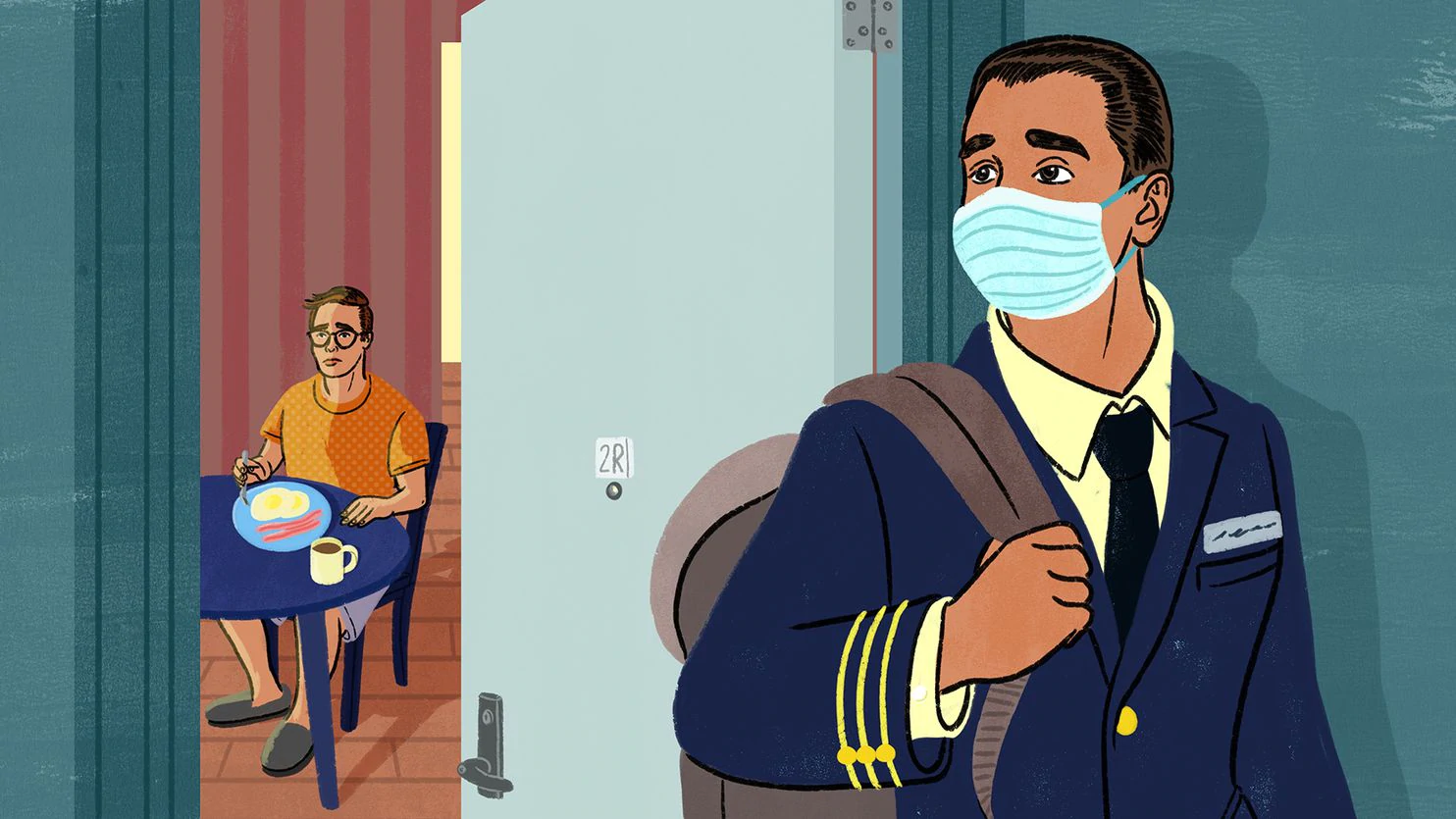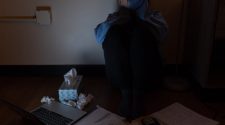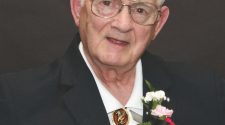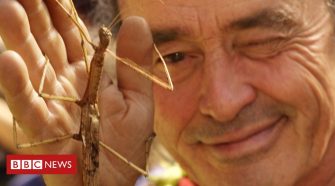Ian Kumamoto is a writer and photographer. He co-founded Chaos+Comrades, an online zine.
When Omar, my roommate and a Manhattan doorman, told me that he was considered an essential worker, I stopped feeling safe in our Brooklyn apartment. As New York City became the U.S. epicenter of the coronavirus pandemic, I was one degree of separation from many who had gotten sick: five friends had lost their senses of smell and taste, and two had tested positive.
But while stay-at-home orders were meant to provide refuge, for me they meant sharing a confined space with someone at risk. Omar was required to show up at work and rode a packed C subway train into the city each morning. Quitting was not an option, since he would lose his income and his health insurance.
[Full coverage of the coronavirus pandemic]
A recent MIT study found a clear link between New York’s public transit and the city’s high rate of infections, as thousands of service workers continued to ride trains and buses each day. I wasn’t surprised when Mayor Bill de Blasio announced that after a month of social distancing, the death toll continued to worsen and that a majority of the casualties were black or Hispanic.
As Omar continued to venture into the outside world, I fled to a friend’s apartment in Bushwick. I didn’t want to confront Omar or make him feel that he had to quit his job to ease my fears, knowing such a request could sour our friendship.
In the past year, we had become unlikely best friends: Omar was the straight son of Mexican immigrants raised in an industrial New Jersey town, and I was a gay kid who moved to the city to attend New York University. After years of acquaintanceship, we moved into aBedford–Stuyvesant brownstone together out of convenience. We fell into a domestic rhythm that included watching Netflix in the evenings: I introduced him to “Pose,” a show about black and Latino ballroom dancers in 1980s New York, while he showed me “Mad Men,” a series that fascinated him because it delved into the troubled minds of Manhattan’s one percent. We were a testament to the serendipitous friendships unique to New York, the force of a rental market pushing those of us with big dreams and small budgets into the crevices of the outer boroughs.
[Sign up for our Coronavirus Updates newsletter to track the outbreak. All stories linked in the newsletter are free to access.]
But our strongest connection was our Mexican heritage: On Sunday mornings, he blasted bachata while he mopped our kitchen floor and lip-synced into a broom, conveying the heartbroken screams of Antony Santos. Sometimes, he would bring chicken tamales or mole his mom had made for us that made me miss the country where I was born.
At the beginning of April, Omar told me over FaceTime that he was getting more nervous about riding the subway. The system was understaffed, running only once every half hour, and several Metropolitan Transportation Authority workers had died. Whenever a train arrived, it was filled with men and women covering their faces with scarves and bandannas.
“They all look like us,” he said. “It’s only a matter of time before I get it, too.”
[The Opinions section is looking for more stories like this one. Write to us with how the virus has affected you.]
Soon after, he developed a fever. It began with a sore throat and chills. I watched him through my phone’s screen, drenched in sweat. I was completely useless; I couldn’t be there for him in the ways that he had been for me so many times before.
As ambulance sirens blared day and night outside the window of a room that wasn’t mine, I wondered if the people in the apartment building where Omar works noticed that he was gone. I wondered if they ever thought that Omar had roommates who were afraid of getting sick, too. Omar never got tested for covid-19, and his fever went away after three days. He didn’t want to use up the last of his vacation days, so he went back to work.
Some people say that we are all in this together. I disagree. The city’s skyscrapers might be empty, but some of our homes are petri dishes. My anxiety worsens whenever I watch the news: a Florida beach reopens, people in California protest, and I feel that this will never end. I’ve been having a recurring nightmare in which a shadow engulfs me and Omar and our entire apartment building, replacing where our lives had been with blackness — no one notices we’re gone. I wake up with my chest feeling tight and for a few seconds, I can’t breathe.
Read more:
Tamal Ray: I spend my day working in the hospital. Then I come home and bake.
Lenore Skenazy: Why a lockdown is a great time to embrace ‘free-range parenting’
Michael Leonberger: Weathering the coronavirus pandemic with an anxiety disorder
Bob Brody: The basketball hoops are down in New York. It’s painful. It’s also our best shot.
‘The fear in the air around us’: Stories of tough jobs and the loneliness of quarantine






![Google Stadia exclusives push potential players to data centers [Updated]](https://newsfortomorrow.com/wp-content/uploads/2019/08/1566260485_Google-Stadia-exclusives-push-potential-players-to-data-centers-Updated-225x125.jpg)











